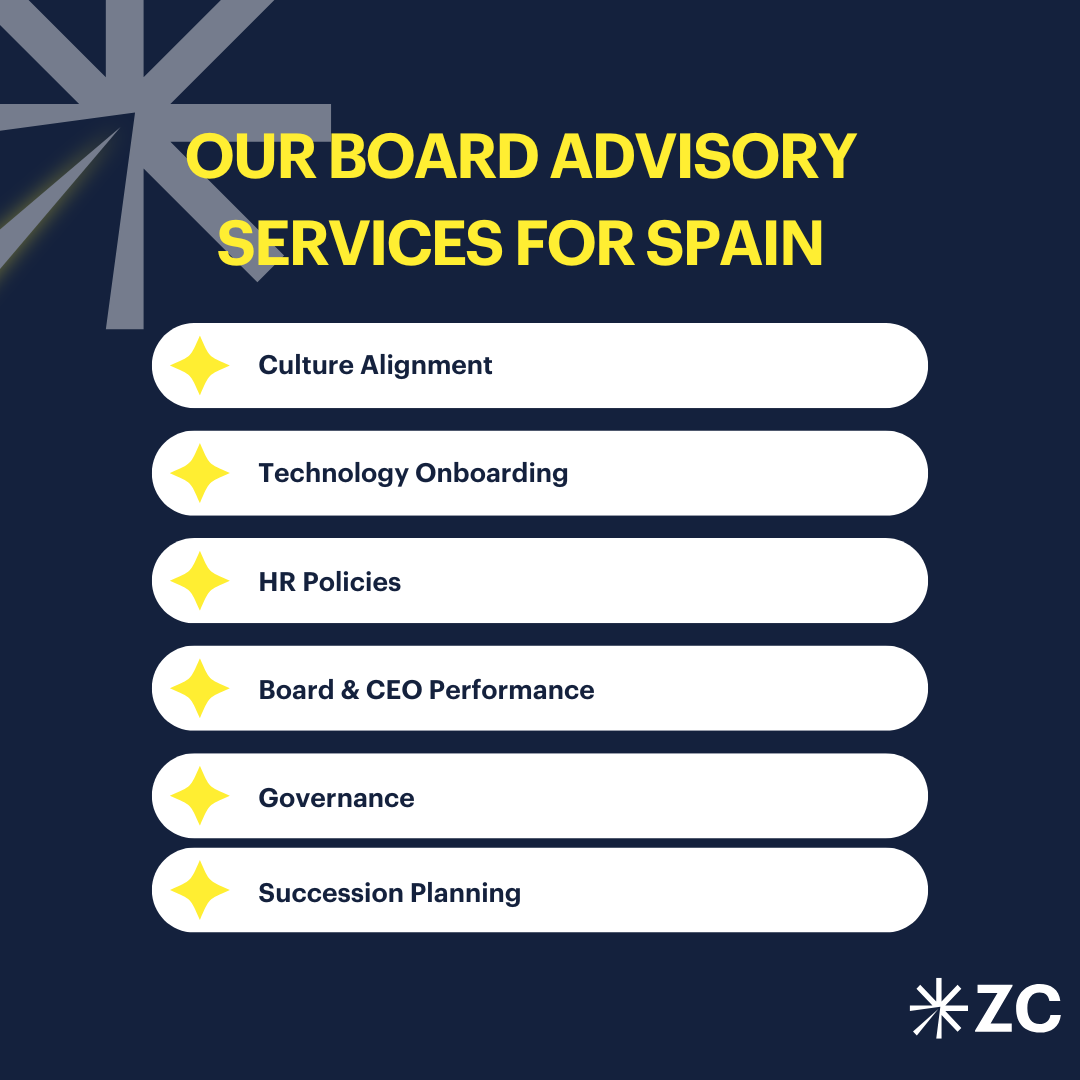The role of Board Advisory in Spain is evolving. For many companies, it’s no longer just about regulatory compliance—it’s about building stronger, more effective boards. As corporate governance standards tighten and investors expect more transparency, Spanish firms are rethinking how their boards operate, with independent advisors taking on a more central role.
Regulations for Spanish Boards
Spain’s Ley de Sociedades de Capital and the CNMV’s Good Governance Code have made one thing clear: board independence matters. Listed companies are now expected to ensure at least 40% of their directors are independent, aligning with EU standards.
This shift is driving demand for board advisory services in Spain, particularly from firms looking to:
- Review their current structure.
- Identify independent directors.
- Align governance practices with international expectations.
For many companies, especially those preparing for growth or seeking investors, strong governance is becoming a non-negotiable.
From Compliance to Strategy in Spain
For years, Spanish boards focused mainly on legal compliance. But that’s changing. Today, more companies are turning to external advisors not just for oversight, but for strategic input—whether on succession planning, international expansion, or navigating digital transformation.
This is why Board Advisory in Spain now goes beyond checking boxes. It’s about adding business value, using governance as a tool to drive growth and manage risk.
ESG and Diversity in Spanish Boards
ESG has found its place on the agenda but turning that into action is another matter. Many boards lack experience in sustainability reporting or navigating stakeholder expectations around environmental and social governance.
Board Advisory can help to:
- Understand their ESG responsibilities.
- Bring in independent directors with sustainability experience.
- Integrate ESG oversight into day-to-day governance—not just annual reports.
At the same time, gender diversity is now more than a goal—it’s a regulatory requirement. By 2026, Spanish listed companies must have 40% women on their boards. This is accelerating change, but many firms still need guidance on how to make that shift effectively.
Moving Beyond Traditional Networks in Spain
In Spain’s many family-owned businesses, board seats often went to trusted contacts or long-standing advisors. But as these companies grow and professionalize, there’s a growing realization: external perspectives matter.
This is where Board Advisory services are stepping in, helping businesses:
- Introduce independent, non-executive directors.
- Balance continuity with fresh perspectives.
- Build boards capable of supporting long-term, sustainable growth.

Why This Matters
Board advisory services are no longer just a formality—they’re a critical part of a company’s strategy. For Spanish firms, strengthening composition isn’t just about meeting regulatory targets. It’s about building leadership teams that can navigate change, drive growth, and withstand challenges.
For that, working with experienced Board Advisory professionals in Spain is becoming a strategic decision—not a regulatory obligation.
Learn more about our services clicking here: CEO & Board advisory Worldwide – Zavala Civitas











